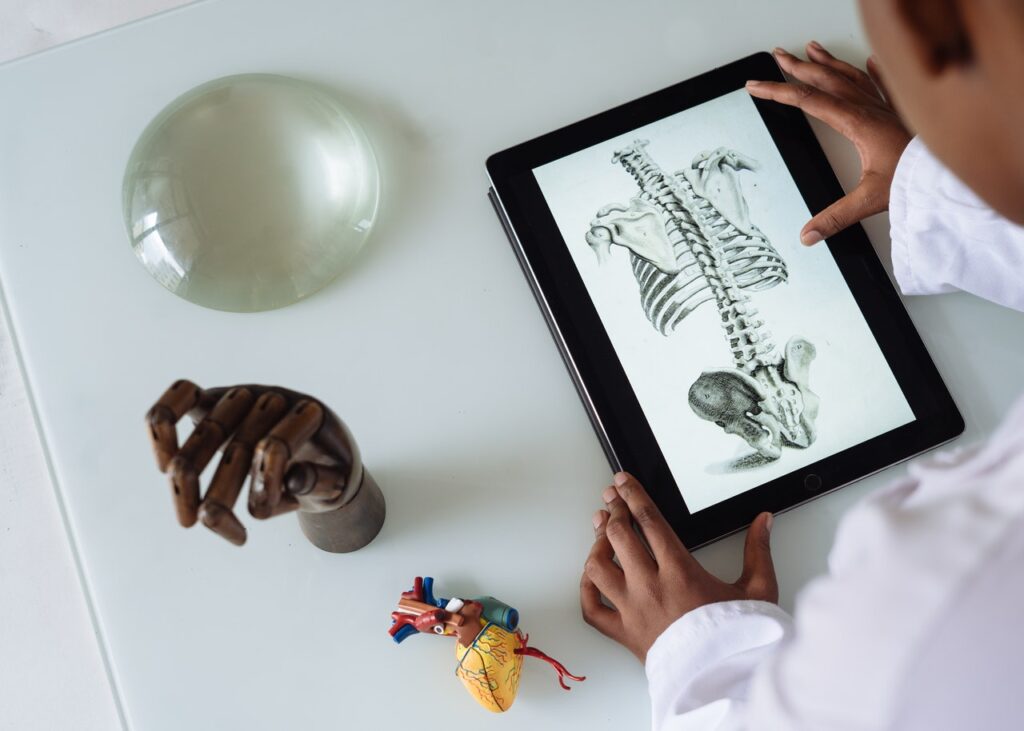
In the recent past, technological advancement has led to several changes in the healthcare industry. Technology has altered how things are done, from the transfer of medical records to assisting in high-risk surgeries. As a result of these medical advancements, human health and life expectancy have significantly improved.
Below are five amazing ways technology is changing the healthcare industry.
1. Electronic Health Records (EHRs)
The shift from physical records to electronic health records is a big transformation in the healthcare industry. It has also enabled numerous advances in medical diagnostics and treatment. Previously, most healthcare facilities had disintegrated information systems with less capability to share medical records. However, with the invention of electronic health records, most health facilities are now connected. Consequently, this has made information transfer faster, efficient, and more integrated.
Today, doctors and nurses can use hand-held electronic devices to capture crucial patient data in real-time. Also, the EHRs make sharing of a patient’s medical history instant, eliminating waste of time trying to understand a patient’s background. Furthermore, storing lab results, symptoms, and other crucial records centrally has enhanced patient care. In turn, this translates into better health since you’re receiving high-quality care.
2. Artificial Intelligence and Robot-Aided Surgery
Technological advancements in AI are rapidly transforming the healthcare industry over the past few years. Today, Artificial Intelligence enables the collection, analysis, and interpretation of huge amounts of information in the various areas of the healthcare sector. As a result, this has significantly enhanced both the speed and accuracy of medical diagnosis, leading to better healthcare services.
Similarly, the use of robots in carrying out surgeries has greatly improved perfection, minimizing most surgical procedures’ intrusiveness. Consequently, this speeds the recovery process and lowers the pain that patients experience after undergoing surgery. Furthermore, robot-aided surgery helps minimize stress among surgeons, leading to many challenges in the healthcare industry.
3. Virtual Healthcare and Virtual Reality
Currently, the introduction of virtual healthcare enables you to check in with your doctor without a physical meeting. For instance, through video conferencing tools and wearable fitness trackers, you can update your doctor regarding your health conditions. Additionally, you don’t need to leave your home when using virtual healthcare, and it enables caregivers to attend to more patients.
Virtual reality is also one of the most influential technological advancements in the healthcare industry. Virtual reality is applied in different ways, but the most outstanding one is training healthcare providers. The technology enables medical trainees to get as close to the actual circumstances as possible
Virtual reality can also be utilized as a form of exposure therapy and an approach to minimize pain and anxiety. Therefore, VR is perceived to be a cost-effective and efficient technology for both training and treatment. The virtual reality market is projected to expand from $8.90 million in 2017 to a whopping $285 million by 2022.
4. Improved Medical Supplies and Equipment
The advancement in technology has also enhanced the manufacturing of medical supplies and equipment. Today, medical supplies and equipment being produced are easier to use, offer an enhanced experience, and last longer. For instance, now a dentist can get a cheap Invisalign that uses the latest technology to help him/her offer better dental healthcare to patients. Eventually, due to the advancement in medical technologies, care providers can offer high-quality healthcare to patients.
5. 3D Printing
Another fascinating technological advancement in the medical field is 3D printing. Since its invention, 3D printing has rapidly progressed and is now widely used in the health sector. For instance, 3D printing allows fast development of prototypes and creates nearly everything, including customized prosthetics and “poly-pills” affordably.
Furthermore, the custom-tailoring feature of 3D printing is transforming organ transplants as well as tissue repair. Today, through 3D printing, you can get custom-made realistic skin if you suffer burns. For these reasons, technology is playing a major role in revolutionizing the healthcare industry for the better.
It’s evident that technology has so far had a great impact on the health sector and has enhanced care for patients. And this is expected to be the case in the future as technology advances. As such, there are many ways technology is changing the healthcare industry. A few of these ways are artificial intelligence, robot-aided surgery, Electronic Health Records (EHRs), 3D printing, and medical supplies and equipment. Ultimately, technological advancement has greatly disrupted the healthcare sector for the better.
Featured image by RF._.studio from Pexels.